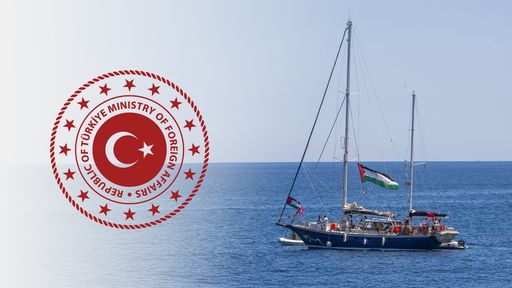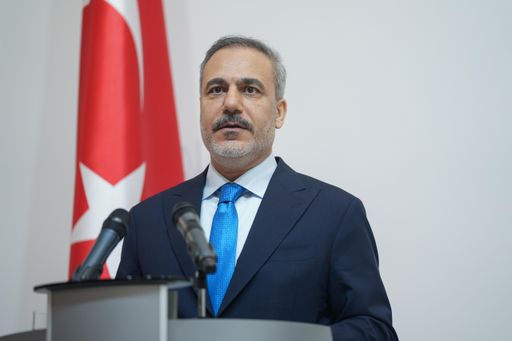Türkiye has firmly denied allegations that a container ship docked at Mersin Port was transporting steel for Israel’s military industry.
The Liberian-flagged vessel VELA, which arrived from Spain on June 9, underwent a thorough inspection by Turkish authorities, who found no evidence supporting the claims.
“The loading manifest and customs records were meticulously examined,” Türkiye’s Center for Combating Disinformation said in a statement posted on X on Tuesday.
“No steel or military-purpose items registered under the name of Israel Military Industries (IMI) or any similar institution were detected on the ship.”
According to the centre, a total of 461 containers were unloaded in Mersin. Of these, 220 were empty and 241 were loaded.
Authorities confirmed that none of the loaded containers contained materials that could be used for military purposes.

Transit cargo bound for other countries, not Israel
Further investigations revealed that the ship was carrying 1,570 transit containers en route to third countries, and 33 loaded containers—inspected and cleared—originated from Türkiye and were bound for Palestine, primarily carrying food supplies.
In its statement, the centre emphasised Türkiye’s strict adherence to international trade regulations and its transparency in port operations. Turkish ports handle nearly eight million containers annually and are subject to robust customs scrutiny.
The government reiterated that all trade with Israel was fully suspended on May 2, 2024, in response to what it described as Israel’s unlawful actions in Gaza.
Since then, Türkiye’s customs system has been closed to all trade transactions involving Israel, including within free zones and ports.
“Türkiye is among the first countries to take the clearest and most principled stance against Israel’s unlawful attacks in Gaza,” the centre stated, urging the public not to lend credence to “unfounded allegations.”
The Trade Ministry previously confirmed the trade suspension was in response to Israel's "aggression against Palestine in violation of international law and human rights."
















